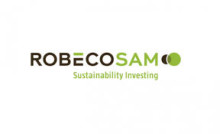
Bron
RobecoSAM
The UN has released the Sustainable Development Goals, asking the private sector to contribute as well. Asset managers such as Robeco cannot only make an important contribution, they can also benefit from the investment opportunities that arise.
In the autumn of 2015, the Sustainable Development Goals (SDGs) were released by the United Nations as a successor to the Millennium Developing Goals (MDGs), which expired in 2015 and had achieved good results on improving education levels and health, reducing hunger and alleviating poverty. The ‘Agenda for Sustainable Development’ has been adopted by 193 countries, who together agreed to contribute to the realization of 17 SDGs by 2030. The 17 goals range from ensuring the availability of water and sanitation for all, food security, achieving gender equality, to access to affordable and sustainable energy within 15 years.
Figure 1 | The UN Sustainable Development Goals

Source: http://www.globalgoals.org
An appeal to the private sector
The SDGs differ from the MDGs in that they call on the public AND the private sector to cooperate with the signatory governments to tackle the most serious issues facing both people and planet.
According to UNCTAD the SDGs will require a step-change in the levels of both public and private investment in all countries. UNCTAD has estimated a yearly financial gap of USD 2.5 trillion in SDG investments. This means that governments themselves cannot financially achieve the SDGs on their own.
The private sector can back many SDGs directly, especially in relation to infrastructure, by investing in power generation, renewable energy, transport, water and sanitation projects. It can also contribute to more abstract concepts such as sustainable economic growth and sustainable production and consumption. Other SDGs such as climate change adaptation, education and the promotion of peaceful societies are more systemic in nature, and thus more difficult to operationalize for the private sector. Therefore we expect that these goals will be mainly addressed by the public sector.
According to a recent PwC study, SDGs 8 (Decent work and economic growth), 13 (Climate action) and 9 (Innovation and infrastructure) have been estimated to be the most actionable and practicable goals for the private sector to tackle. Those goals represent opportunities for companies to make an economic profit from solving social or environmental problems while at the same time creating positive change.
How does Robeco contribute to the SDGs?
Robeco contributes to the SDGs by integrating Environmental, Social and Governance (ESG) factors into the investment decision making process of various investment strategies. In addition, Robeco encourages companies to take action on the SDGs through a constructive dialogue with them and by voting at over 4’000 shareholder meetings.
Robeco sees the SDGs as a business opportunity for listed and non-listed companies. Companies that align their business strategies with the SDGs will be more likely to anticipate future regulation and market developments. This will allow them to avoid the risk of losing their license to operate or facing future high costs of adjusting to structural changes too late.
Prahalad et al. and Porter et al. conducted empirical studies which demonstrated that business models that integrate ESG factors lead to innovation, process improvements, operational efficiencies and many other positive spill-over effects. These are likely to have a positive impact on financial performance. In turn, lagging sustainability performance may translate into supply chain issues, low employee productivity and litigation costs. Thus, the non-integration of SDGs could represent a financial risk.
Working towards the SDGs through active ownership
RobecoSAM’s Governance & Active Ownership team contributes to the achievement of the SDGs in two different ways. First, voting activities support environmental and social proposals that promote creation of long-term shareholder value. Second, the team encourages companies to take action on the SDGs through a constructive dialogue (engagement).
As an example, in the engagement theme ‘Environmental Challenges in the European Electric Utilities Sector’ electric utilities are encouraged to implement ambitious environmental strategies and, independently of their historical energy mix, focus on de-carbonization: moving from coal to gas to renewables and using meaningful internal carbon prices in their planning.
By encouraging 12 utilities to shift from coal to gas to renewables, we contribute to the realization of SDG 7 – Renewable Energy. During our engagement so far we have already seen substantial changes taking place in the sector. Two German utilities, for example, have drastically adjusted their business models in order to focus on renewable energy.
The ‘Social issues in the Food & Agri supply chain’ engagement theme is an example of how we encourage companies in the food industry to work towards the SDGs by considering smallholder capacity building and investing in its development. We encourage companies to support the development of the communities in which they operate by providing job skills training and education on agricultural techniques. This contributes to the achievement of SDG 1 – No poverty and SDG 2 – No hunger.
Through our ‘Board Quality’ and ‘Good Governance’ engagement themes we contribute to SDG 5 – Gender Equality. In these engagement programs we encourage companies to create well balanced boards in terms of gender, age and skills.
Conclusion
The financial industry, with its ability to direct capital towards sectors that offer the biggest opportunities to contribute to the SDGs, has a special role to play. The development of the SDGs agenda by the UN aligns well with Robeco’s current work. Sustainability criteria are integrated into investment processes across all asset classes and comprehensive active ownership activities address many SDGs.



